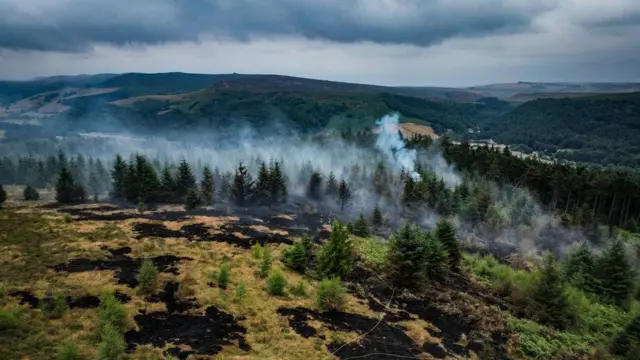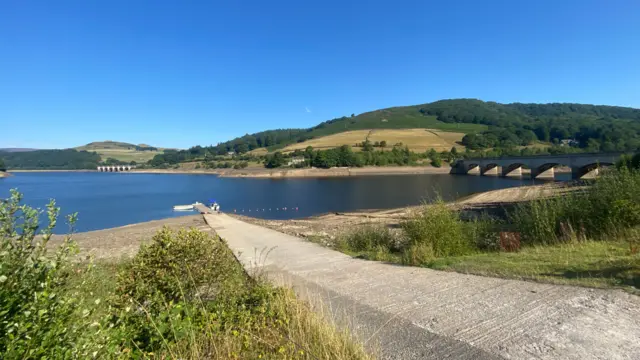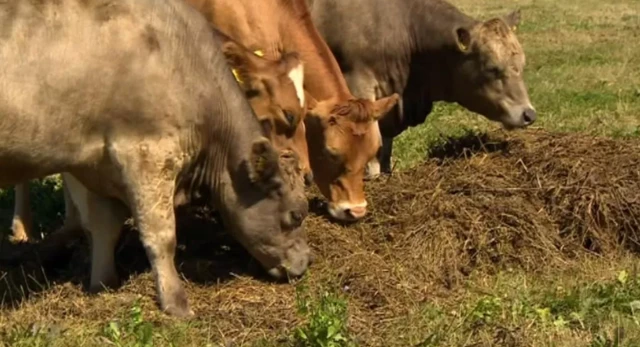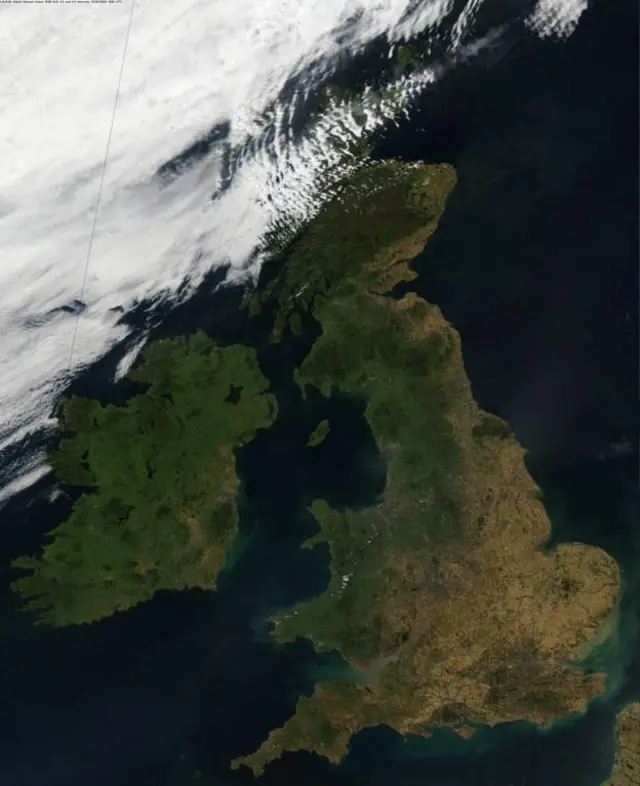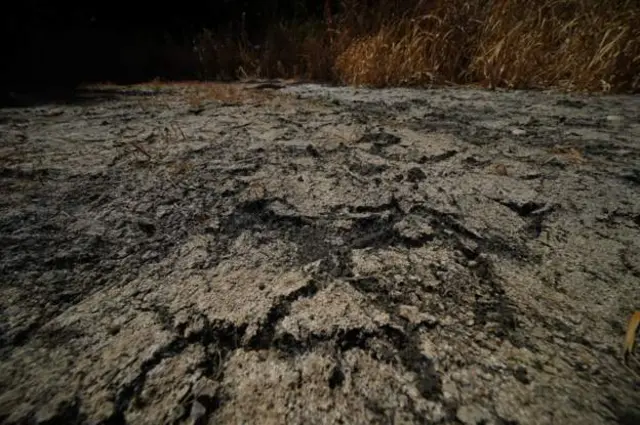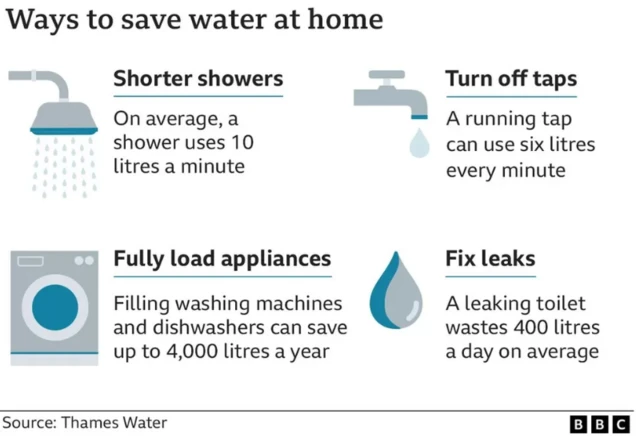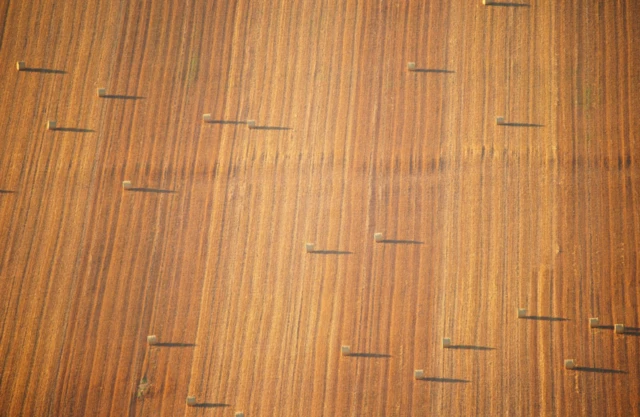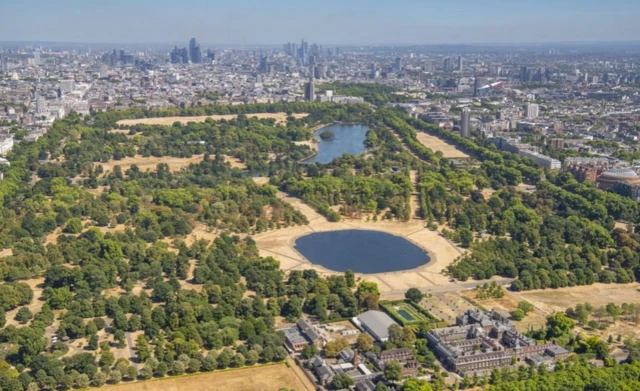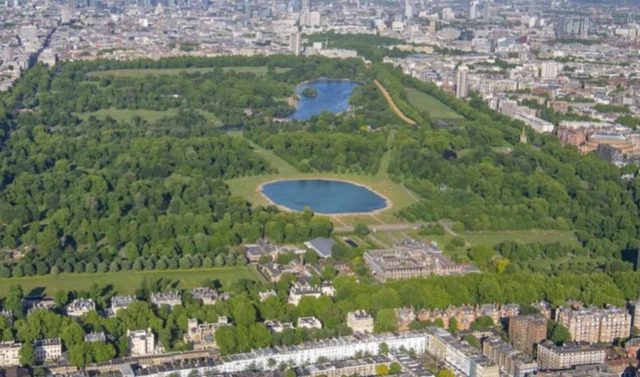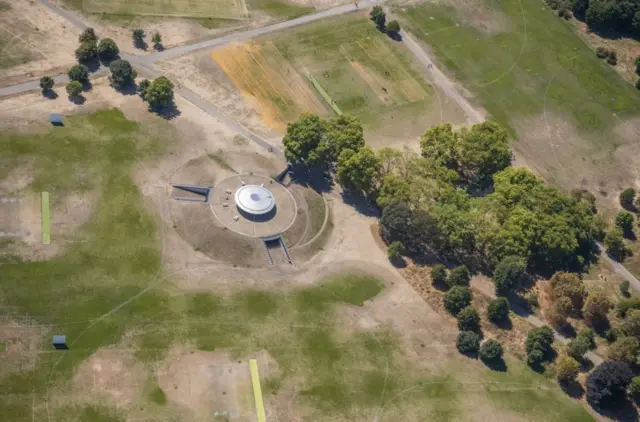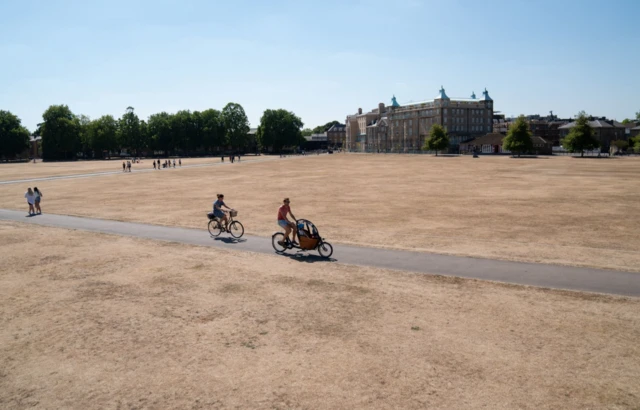Fish will be struggling with the heat and lack of oxygenpublished at 11:20 BST 13 August 2022
 Andrea Ormsby
Andrea Ormsby
Reporting from Launceston, Cornwall
On the edge of the River Tamar in Launceston on the Cornwall and Devon border you can really see the impact the lack of rainfall has had.
It hasn’t rained here in weeks. The river is lower than anyone can remember and the Environment Agency say fish will be starting to really struggle with the heat and a lack of oxygen in the water.
This is just one of the areas across the country where a drought has been declared, and staff from the Environment Agency are here with a remote controlled boat to test the water levels and come up with a plan of action.
The Agency’s Drought Lead for Devon, Cornwall and the Isles of Scilly says: “I would predict in years to come that water will become the most valuable thing on the planet.”
Having seen how low this river is I will definitely be turning my taps off a lot quicker from now on.
